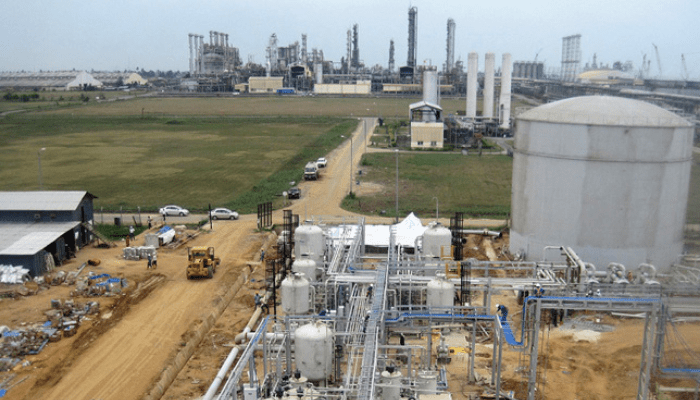Business
FG Approves Gas Supply for $3.3 Billion Methanol Plant Project

The Federal Government has approved the supply of gas to a $3.3 billion methanol plant, a major step toward boosting Nigeria’s industrial growth and energy sector.
The Nigerian National Petroleum Company Limited, on behalf of the Federal Government, has entered into an agreement to commence gas sales to the $3.3 billion methanol-manufacturing project by Brass Fertilizer & Petrochemical Company Ltd.
At the signing ceremony held at the ministry’s headquarters, Ekperikpe Ekpo, Minister of State for Petroleum Resources (Gas), announced that a gas sales and purchase agreement was finalized with Shell, TotalEnergies, and Agip on Friday in Abuja. This comes nine years after the project was initially announced.
He stated that the signing marked “a significant milestone in ongoing efforts to monetize Nigeria’s vast gas reserves.”
He noted that the agreement marked a crucial milestone in leveraging abundant natural gas resources to drive rapid industrialization and economic growth.
“The Signing Ceremony marks an important milestone in the progress of the $3.3 billion Brass Methanol Project, bringing us one step closer to making it a reality. I encourage everyone involved to maintain the same determination that has helped us overcome past challenges,” stated the minister during his address.
Ekpo mentioned that the project is anticipated “to attract essential Foreign Direct Investment and generate thousands of jobs for our large population, transforming both the appearance and prospects of the host state and community positively.”
He also encouraged all parties to maintain the determination that helped them overcome obstacles in making the project’s signing a reality, by reaching financial closure and beginning construction as quickly as possible.
Upon completion, the project is anticipated to generate over $1.5 billion annually from exports of fertilizers, petrochemicals, and other gas-based products.
“In addition to increasing exports, the project will cut fertilizer imports by 30 percent, saving Nigeria around $200 million in foreign exchange each year while also creating thousands of jobs.”
READ ALSO: FG Grants New Permission to Petrol Marketers Amid Dangote Refinery Operations
The agreement would allow Brass and its partners to move forward with building the $3.3 billion project.
NNPCL and its partners were anticipated to supply approximately 270 million standard cubic feet of gas per day to the project situated on Brass Island in southern Bayelsa State.
At the event, Ambassador Nicholas Ella, Permanent Secretary of MPR, announced that the Brass Fertiliser and Petrochemical Project—valued at $3.5 billion—is expected to generate over $1.5 billion annually from exporting fertilisers, petrochemicals, and other gas-based products.
He stated that the agreement was a significant achievement in the Decade of Gas initiative, launched by President Bola Tinubu’s administration, which seeks to make gas central to Nigeria’s industrialization and energy security.
He stated that it is expected to contribute approximately $600 million annually to Nigeria’s GDP and could potentially have a broader economic impact of up to $2 billion each year due to the growth it will stimulate in related industries.
The project is set to generate more than 5,000 direct jobs and an additional 35,000 indirect positions, greatly enhancing the living standards of numerous Nigerians, especially those in the Niger Delta area.
The Permanent Secretary stated that the initiative is closely aligned with Nigeria’s commitment to eliminating routine flaring by 2030 and advancing the objectives of the National Gas Policy through full utilization of its gas resources for sustainable development.
Oritsemeyiwa Eyesan, the Executive Vice President of Upstream at NNPC, stated that the agreement would advance a key component needed to establish a 10,000-methanol plant in Nigeria.
